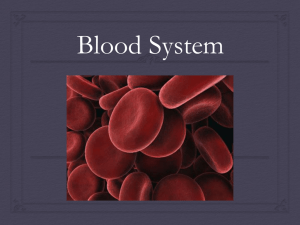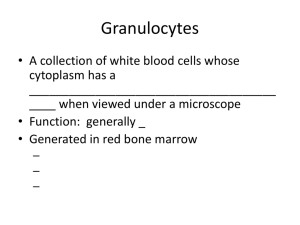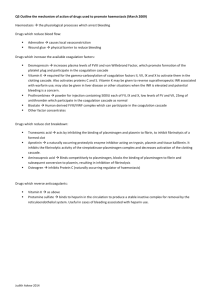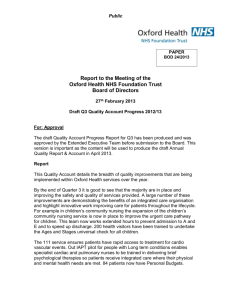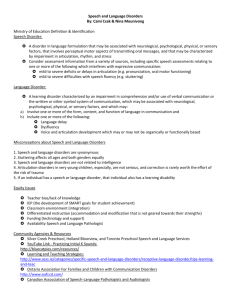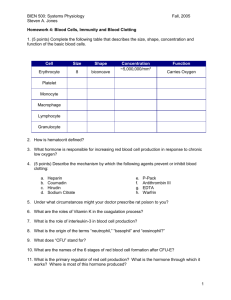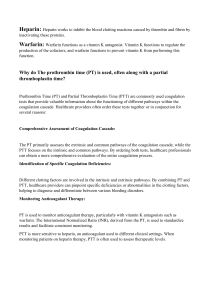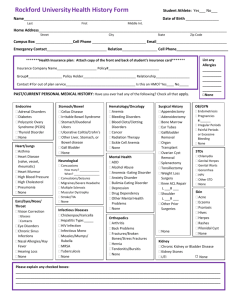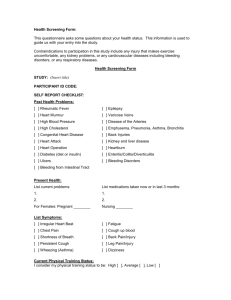NU7683 Nursing Care of the Patient with a Coagulation Disorder
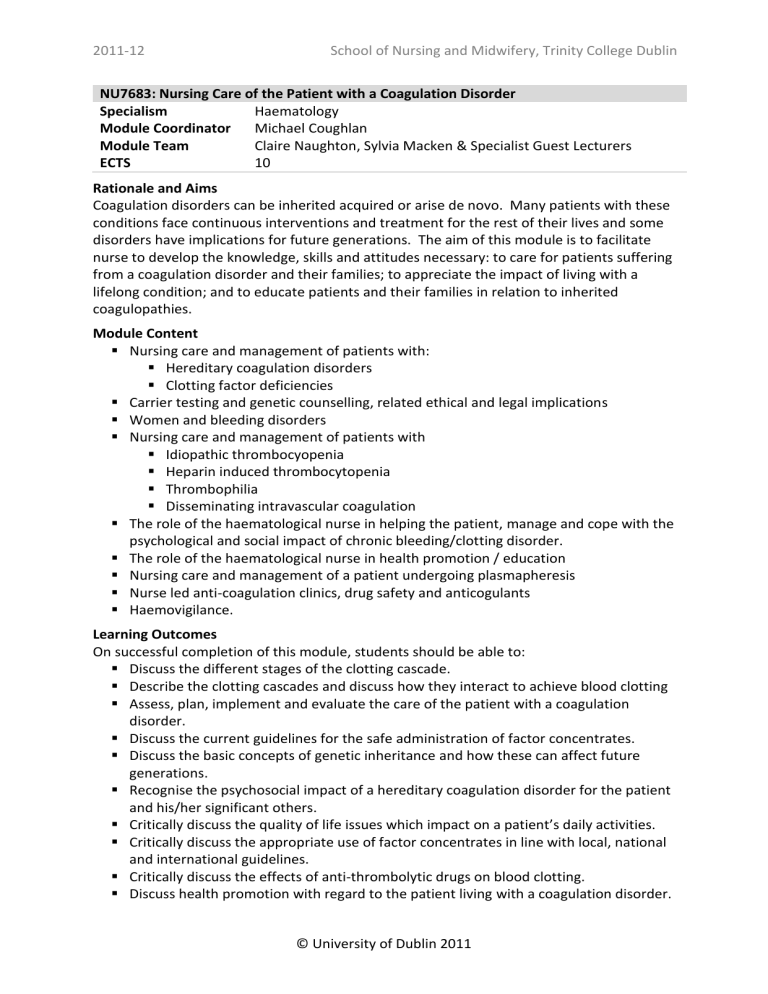
2011-12 School of Nursing and Midwifery, Trinity College Dublin
NU7683: Nursing Care of the Patient with a Coagulation Disorder
Specialism Haematology
Module Coordinator Michael Coughlan
Module Team
ECTS
Claire Naughton, Sylvia Macken & Specialist Guest Lecturers
10
Rationale and Aims
Coagulation disorders can be inherited acquired or arise de novo. Many patients with these conditions face continuous interventions and treatment for the rest of their lives and some disorders have implications for future generations. The aim of this module is to facilitate nurse to develop the knowledge, skills and attitudes necessary: to care for patients suffering from a coagulation disorder and their families; to appreciate the impact of living with a lifelong condition; and to educate patients and their families in relation to inherited coagulopathies.
Module Content
Nursing care and management of patients with:
Hereditary coagulation disorders
Clotting factor deficiencies
Carrier testing and genetic counselling, related ethical and legal implications
Women and bleeding disorders
Nursing care and management of patients with
Idiopathic thrombocyopenia
Heparin induced thrombocytopenia
Thrombophilia
Disseminating intravascular coagulation
The role of the haematological nurse in helping the patient, manage and cope with the psychological and social impact of chronic bleeding/clotting disorder.
The role of the haematological nurse in health promotion / education
Nursing care and management of a patient undergoing plasmapheresis
Nurse led anti-coagulation clinics, drug safety and anticogulants
Haemovigilance.
Learning Outcomes
On successful completion of this module, students should be able to:
Discuss the different stages of the clotting cascade.
Describe the clotting cascades and discuss how they interact to achieve blood clotting
Assess, plan, implement and evaluate the care of the patient with a coagulation disorder.
Discuss the current guidelines for the safe administration of factor concentrates.
Discuss the basic concepts of genetic inheritance and how these can affect future generations.
Recognise the psychosocial impact of a hereditary coagulation disorder for the patient and his/her significant others.
Critically discuss the quality of life issues which impact on a patient’s daily activities.
Critically discuss the appropriate use of factor concentrates in line with local, national and international guidelines.
Critically discuss the effects of anti-thrombolytic drugs on blood clotting.
Discuss health promotion with regard to the patient living with a coagulation disorder.
© University of Dublin 2011
2011-12 School of Nursing and Midwifery, Trinity College Dublin
Methods of Assessment
Presentation:
Title to be confirmed – see separate assignment guidelines.
Weighting
100%
Contact Hours
Direct Contact: Class and Online
Assessment Student Effort
Specified Activities
Self-Directed Learning
Direct Contact: Supervision
Total Hours
30
170
200
Indicative Resources – more detailed lists may be provided by lecturers
Brenner B. Marder .V. J. Conard J. (2002) Women’s issues in Thrombosis and Hemostasis.
Martin Dunitz Ltd., London.
Goodnight S.H & Hathaway W.E. (2001). Disorders of Haemostasis and Thrombosis: A
Clinical Guide 2 nd Ed. McGraw-Hill, New York.
Green D. and Ludlam C.A. (2004) Bleeding Disorders: Fast Facts. Health Press. Oxford
Hoffand A.V. and Moss P.A.H. (2011) Essential Haematology. 6 th edn, Blackwell Science.
Oxford.
Jones P. (2002) Living with Haemophilia, 5 th edn, Oxford University Press, Oxford.
Key N. Makris M. O Shaughnessy D. and Lillicrap, D. (2009) Practical Haemostasis and
Thrombosis 2 nd Ed. Wiley-Blackwell, London.
Lee C. Kadir R. and Kouides P. (2009) Inherited Bleeding Disorders in Women. Wiley-
Blackwell. London.
Web Sites
Http:// www.haemophilia.ie
Http://www.wfh.org
Http:// www.thrombosisadvisor.com
Http://www.isth.org
© University of Dublin 2011
